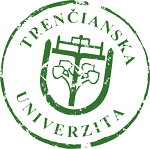OTTO SCHOTT INSTITUTE OF MATERIALS RESEARCH, FRIEDRICH SCHILLER UNIVERSITY JENA
The Friedrich Schiller University of Jena, founded in 1558, presently hosts ~ 20.000 students, 350 professors and a staff of 6.500. Its activities span all areas of science, with special focus on the topics of “Light”, “Life” and “Liberty”. Being part of the university, the Otto Schott Institute of Materials Research has been created in 2012 from merging the Otto Schott Institute of Glass Chemistry and the university’s department of materials science and engineering. Today, it comprises 8 Professors and a workforce of ~ 150. Activities span all areas of experimental glass science with particular focus on the exploration and development of new glass and glass ceramic compositions and surface modification techniques. Of main interest are the optical and mechanical properties of multi-component oxide, oxynitride and oxyhalide materials. Researchers at the institute explore structure-property relations with the ultimate objective to provide topology-based tools for the description of non-crystalline solids. The Chair of Glass Chemistry II, direct partner in the FunGlass consortium, has collaborations with more than 30 industrial partners, and a substantial third-party budget from Germany’s major grant institutions, including the German Science Foundation, the German Ministry of Education and Research, the Carl Zeiss Foundation, the European Commission and the European Research Council. The group also actively cooperates in various national and international initiatives, in particular, on the areas of glass science (through the International Commission on Glass), mechanical properties (through coordination activities in multi-laboratory consortia), photosynthesis and materials in biochemical engineering (through participation in European network initiatives) and on the area of (glass-)materials for energy storage and conversion (through membership in the board of the Centre of Energy and Environmental Chemistry).
Specific research topics are organized among three lines, i.e., energy, optics and mechanics:
1. Energy-related materials: Focusing on structural glasses and advanced substrates, various research activities and in close collaborations with industrial partners – development projects are undertaken on the areas of smart windows, light-controlling coatings, adaptive surfaces, surface haptics and adsorption.
2. Glasses for optics and photonics: Here, we are focusing on photoluminescence for lighting applications, (solar) spectral conversion and photochemistry, magneto-optics and novel materials for optical fiber in sensing, telecommunication and lighting.
3. Micro- and nanomechanical properties of glasses: The surface mechanical properties of disordered materials represent the third focus of the group, where we strive to develop both fundamental understanding of the molecular and atomic mechanisms which constitute mechanical behaviour, and to derive novel strategies of material toughening.
- Otto Schott Institute of Materials Research, Friedrich Schiller University Jena
Fraunhoferstraße 6
07743 Jena
Germany- Prof. Lothar Wondraczek, lothar.wondraczek@uni-jena.de







